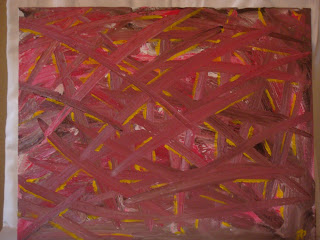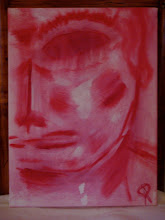
Andy Taylor is a liar. Seriously. I’ve been watching episodes of the show evenings this winter, from its early black-and-white days featuring Barney Fife to its four-color evolution with prominent roles for a cast of small-town characters: the frumpy, fastidious worrywart Aunt Bea, the earnest, fastidious accountant Howard Sprague, the fastidious school teacher Helen Crump (Andy’s bland girlfriend), and two goofballs: Floyd the barber, and Goober. Andy is a constant, of course, as is his son, Opie.
Several of these characters can be annoying or uncomfortable to watch at times, especially Aunt Bea, Goober and Helen Crump. Aunt Bea can’t relax, and Goober is so stupid at times it is painful rather than funny. And Helen—what writer came up with the name of “Crump?” What stylist that butch haircut? She brings little to the table other than a bland pleasantness. Her “romance” with Andy is tepid, she’s neither beautiful nor funny; most of the time she seems no more important to the story than a piece of furniture. When she is featured on occasion, it is usually to be petty, jealous or untrusting of Andy.
With good reason. Almost every episode revolves around some deceit by that man—the sheriff, no less! He is always lying: to Helen, about that blonde attorney he spent the day with in Mount Pilot, or his old high school flame (the two of them couldn’t sleep and met up in the woods in the middle of the night, but of course it was all on the up-and-up). They make up at the end of the episodes, but the stories pivot on Andy’s conviction that Helen will be unable to handle the truth.
Andy lies to Aunt Bea about Opie visiting the sheriff’s office after school, against her wishes, or about who is doing the cooking and cleaning when Aunt Bea makes one of her rare trips out of town. These are presented as harmless, even humorous “white lies,” as acceptable ways to avoid conflict.
Andy manipulates his friends to get them to overcome their petty grievances, getting Aunt Bea and her friend Clara to make up after an acrimonious vacation to Mexico, or tricking Barney or Goober, Floyd and Howard by pretending to take the side of the bad guys (a developer who wants to evict a family, a barbershop franchise that briefly takes over Floyd’s homey shop) to get his desired outcome. The businessman castigates Andy for being cruel and reverses his position, allowing the family to stay; landlord Howard and tenant Floyd agree to split a proposed rent increase so Floyd can remain on Main Street, angrily chiding Andy for failing to see the role of the shop as a community meeting place. Andy takes the heat and smirks when they look away, his secret preserved.
The themes of lying and deception dominate. Barney is terrified of a criminal on the loose and through a series of slapstick moves manages to apprehend him, and Andy conspires to make it look like Barney was a brave hero, so as not to wound his ego. The town is filled with simpletons, er, simple folk. When people complain that Barney is acting too officious, a straight-faced Andy starts telling everyone that he’s going to fire Barney and bring in a replacement, and hearing this the townspeople rally to Barney’s defense. Aunt Bea fools one potential suitor (a clergyman, no less!) by wearing a wig, and pretends to be a “swinger” to turn away another.
These lies are presented as incidental to stories that on the surface appear to be about people’s good hearts and pure intentions, about a close-knit community where everyone pulls together. But even when the virtue of honesty is the theme of an episode—like the one in which Opie breaks a bottle of perfume at the drugstore where he works, and pays a fortune to replace it rather than own up—the moral is undermined by the show’s compulsive lying. The resolution of this supposedly clear-cut tale is compromised when, to make Opie feel better, the store’s owner breaks a bottle of perfume deliberately when Opie is not looking. One lie begets another, but all in a good cause.
No one talks to each other in this supposedly warm portrayal of small-town America. People routinely are dishonest, and Andy is unwilling to treat his friends or family as equals, condescending to them, treating them like children. The town father as sheriff knows best. But his benevolent hand requires constant deception, and he pays an unacknowledged price. For all the laughs and despite appearances, Andy leads an emotionally empty life—there is no one worthy of his respect, no one his equal.
This originally appeared in the 2004 Margie: The American Journal of Poetry:
Fathers In Black-And-White
I was raised in black-and-white.
My father often worked,
seldom spoke, but furnished me with a TV.
Dick Van Dyke
What an athlete.
See him tumble and get right back up—
in suit and tie!
Handsome as a geek, proof that goofballs
can get great jobs and a beautiful wife.
Perry Mason
Raymond Burr.
One’s an actor. One’s a lawyer,
carrying justice on his broad shoulders.
People murder to cover themselves.
People murder for love.
People murder over family wealth.
It doesn’t matter.
Perry unmasks them with his dagger eyes, his tidal voice,
always taking the exact same time.
My father always worked,
never spoke, but provided me their teachings.
Ward Cleaver
Thinks like a cleaver. Acts like a cleaver.
Cleaves his sons. Cleaves his wife.
Ward seems like an easy-going guy.
Just don’t get on his bad side.
Andy of Mayberry
Bit of a hayseed, but always does the right thing,
even when it’s hard, saving Barney Fife from his stupidity,
answering when his bird of a boy shrieks, “Pa!” Pa!”
He doesn’t like locking anyone up
in his harmless birdcage,
but will if he has to.
That’s his job. That’s the law.
My father sometimes watched with me,
but let them do his talking.






